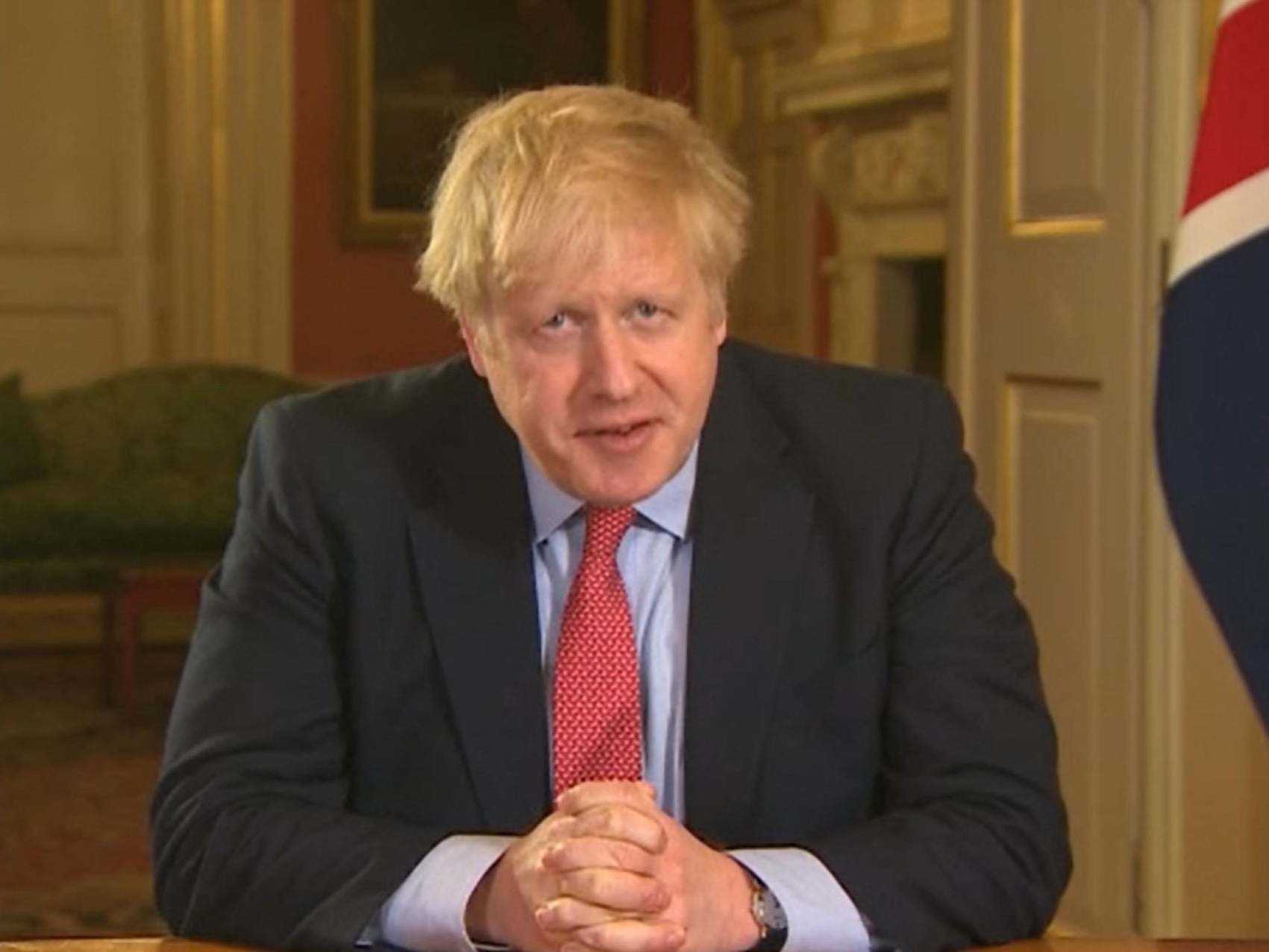Coronavirus: Why Boris Johnson is announcing lockdown changes in a TV address
Andrew Grice looks at how a televised message plays into the prime minister’s hands


Traditionally, Boris Johnson would have made his announcement on the future of the lockdown in parliament. But there were several reasons why it suited him to make a televised address to the nation at 7pm on Sunday.
The virtual House of Commons is sitting only from Monday to Wednesday. There could have been a special sitting last Thursday, when the previous three-week lockdown came up for renewal. But waiting until Sunday allowed the cabinet to get the most up-to-date data from its scientific advisers before making a final decision on relaxing some restrictions or setting out a timeline under which they might be lifted.
Johnson could have made his announcement at the daily Downing Street press conference at 4pm on Sunday, but that would have meant facing questions from journalists and the TV audience would have been smaller. Giving it straight to camera improves his chances of delivering a precise message, reducing the prospect of it becoming fuzzy under questioning.
In press conferences during the coronavirus crisis, Johnson has sometimes struggled to stay on message. His natural exuberance and optimism would normally be an asset in such dark times. But it can become a handicap when he must leave no room for ambiguity on the lockdown rules.
Indeed, Johnson’s loose language when explaining his Sunday date during Prime Minister’s Questions provoked premature headlines about the shutdown being ended. Aware that the speaker Lindsay Hoyle wanted the announcement delayed until a Commons statement on Monday afternoon, the PM said: “We will want, if we possibly can, to get going with some of these measures on Monday, and I think it will be a good thing if people have an idea of what is coming the following day.”
His communications advisers argue with reason that a televised address is the most effective way to reach the public. His announcement of the lockdown in March was watched live by 27 million people, making it one of the most watched in TV history.
All prime ministers, especially in a crisis, want to be seen as the “father of the nation” (as well, in Johnson’s case, of at least six children). Team Boris has ripped up the rule book. When the UK left the EU on 31 January, Downing Street pre-recorded an in-house address instead of inviting in one TV network, which would then share his statement with the others under the usual “pooling” system.
Taking back control misfired. The BBC and ITV News did not run his statement, sticking to a deal to boycott it, while Sky News showed only an extract. And the “new era” promised by Johnson turned out to be very different from the one he had in mind.
Join our commenting forum
Join thought-provoking conversations, follow other Independent readers and see their replies
Comments